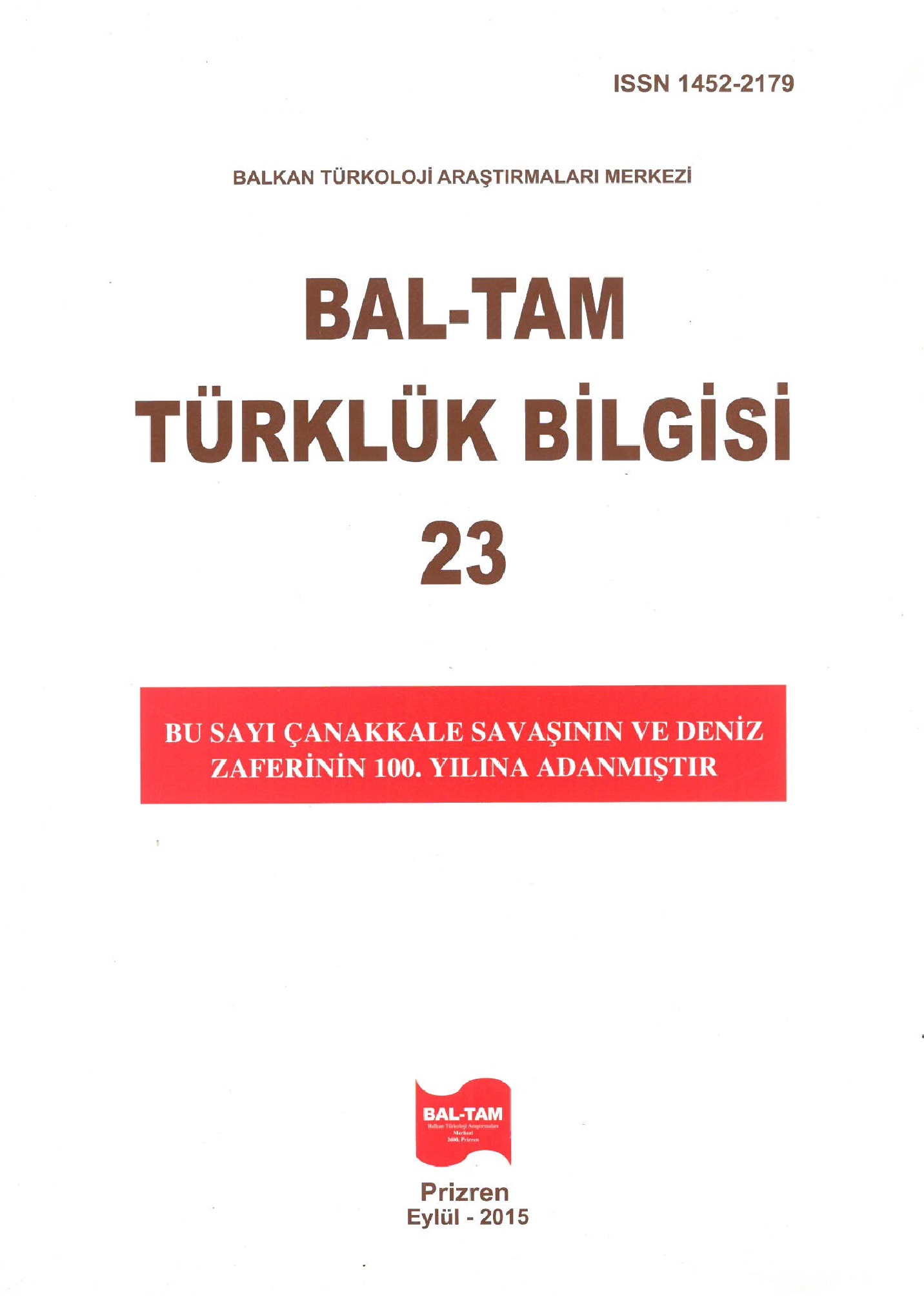Author :
Abstract
Türk edebiyatının arnavutçada tanınmasını süreç ve sonuç olarak
incelerken, edebiyatı ve edebiyat dışı unsurların el ele yürüdüğünü, hatta
birçok durumlarda birbirine yer verdiklerini anlamaktayız. Süreç olarak
değişik yerlerde de olduğu gibi hepimizin tarafından iyi bilinen yollardan
geçmiştir, bu yolları ise taklit, inkar, yeniden tanıma ve yeniden değerlendirme
olarak adlandırmayı uygun görmekteyiz. Verilerimize göre böylesi gelişmeler,
Arnavutlukta doğunun taklitçileri olarak tanınan arnavut beytecilerin ortaya
çıkmasına neden olmuştur. Diğer yandan ise, türk edebiyatına karşı gösterilen
ve on yıllarca suren bir engel ve inkarla karşı karşıya olmuşuz. Buna rağmen
türk edebiyatından birçok yazarın eserlerine ulaşmışız ama, bu geniş
edebiyatın kaymağında çok az sayıyoruz. Arnavutlukta tanınan yazarların
eserlerinin seçimi uzun bir zamanda ideolojik kriterlere dayalı yani dilsel
olmayan unsurlara dayanarak yapıldı. Üstelik, değerleri çok iyi bilinen
yazarlar bile söz konusu oldukları zaman, eserin yarumlanması sosyal
realizmin çevrelerini geçmiyordu (kendileri bu edebi akımla bağlantısı
olmamasına rağmen). Böylelikle eserin ve yazarın tanımı eksik yansıyordu.
Günümüzde ise türk edebiyatına karşı ilgi artmakta ve buna arnavut
okurun tebrik edilecek payları çoktur. Bu okur dogmalardan ve önyargılardan
kurtulmuş olarak, güzel edebiyatı diğer ülkelerdeki kardeşleri gibi aramakta
ve tadını almaktadır.
Keywords
Abstract
Exploring the presentation of Turkish literature in Albania both as
process and as result one comes to the conclusion that the literary and extra-
literary have long stood side by side, at times ceding to one another. As a
process this reception has gone through well-known stages, which might be
categorized as follows: the glorification (imitation), the repudiation, the rediscovery, and the revaluation. As regards results, such a dynamic has led
on the one hand to a well-known tradition of ‘plagiarists’ known as the
‘beyteciler’, and on the other hand to the disregard – which has continued for
several decades – of the Turkish literature. Furthermore, we have had
publications of several Turkish authors, but these were only a handful and
even among those authors published there were many who were not
considered first-rate. For quite a long time the selection of these authors was
done based on strictly ideological criteria, therefore, extra-literary. Even in
cases of outstanding writers, their work was interpreted in terms of social
realism, although those writers had nothing to do with that literary trend.
Needles to say, that compromised the understanding of the work and the
evaluation of the author.
On the other hand, we can’t ignore the fact the present-day revaluation
of Turkish literature is an indicator of the emancipation of the Albanian
readers who, freed from dogmas and biases, are searching for and enjoying
good literature produced by their brethren and anywhere in the world.
Keywords
- 1) DERJAJ, Adriatik, Rreth Drejtshkrimit te turqizmave, Prishtine, 2007
- 1) DERJAJ, Adriatik, Rreth Drejtshkrimit te turqizmave, Prishtine, 2007 2) AGOLLİ, Dritero, Kujtime, Tirane, 1988
- 3) Edebiyat Antolojisi, Can Yayaınları, İstanbul 2007
- 5) Genel Türk Tarihi, Yeni Türkiye Yayınları, Ankara 2002.
- 6) OKAY, Orhan, Osmanlı Devleti’nin Yenileşme Döneminde Türk Edebiyati, Genel Turk Tarihi, Cilt 8, Sayfa 79, Yeni Turk Yayınları, Ankara 2002.
- Aziz Nesin, Nuk është krejt ashtu. Tam öyle değil, Fıkralar. Tiran 1979Fuat Bajkurt, Qyteti është larg. Roman. Şehir uzaktır. Tiran 1979
- Nazım Hikmet, Peizazhe njerëzore, Poezi. Insan peysajları, Şiirler, Tiran, 1989 Orhan Pamuk, Keshtjella e Bardhe, Roman. Beyaz Kale, Tiran 2008
- R.N.Güntekin, Ferideja, Roman. Çalıkuşu, Tiran 1979
- Suad Derviş, I burgosuri i Ankarasë, Roman. Ankara mahkumu, Roman. Tiran, 1962 Talip Aydın, Alo fëmijë, Tregime. Alo, çocuklar, Hikayeler, Tiran 1984
- Yaşar Kemal, Memet Imcaku, Roman. İnce Memed, Roman, Tiran 1983 Yaşar Kemal, Shtylla, Roman. Orta direk, Roman Tiran 1975





